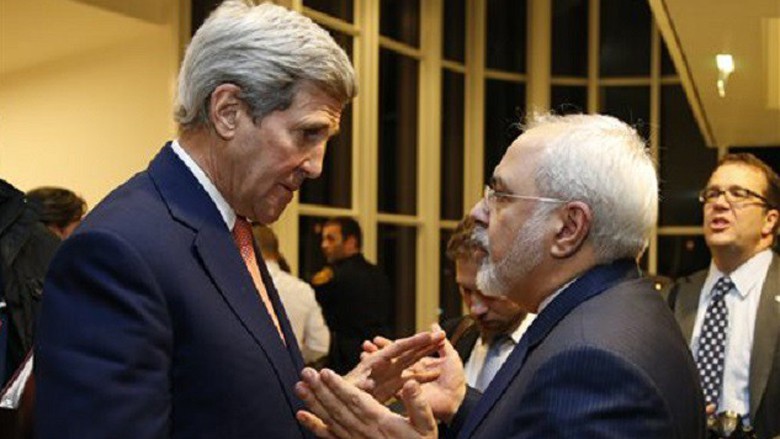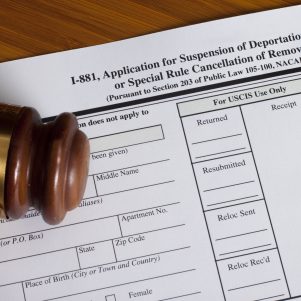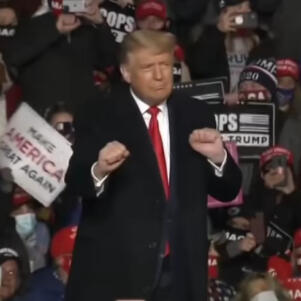Boston prosecutors drop charges against Iranian national in wake of nuclear deal
By Evan Lips | January 25, 2016, 18:07 EST
 U.S. Secretary of State John Kerry talks with Iranian Foreign Minister Mohammad Javad Zarif, right, after the International Atomic Energy Agency (IAEA) verified that Iran had met all conditions under the nuclear deal in Vienna Jan. 16. (Kevin Lamarque/Pool via AP)
U.S. Secretary of State John Kerry talks with Iranian Foreign Minister Mohammad Javad Zarif, right, after the International Atomic Energy Agency (IAEA) verified that Iran had met all conditions under the nuclear deal in Vienna Jan. 16. (Kevin Lamarque/Pool via AP) BOSTON –President Barack Obama’s landmark nuclear deal with Iran is paying dividends for one criminal defendant charged in U.S. District Court in Boston with helping Iran in its efforts to acquire nuclear weapons.
Not so for the Iranian man’s alleged accomplice, a Chinese national.
In documents filed Jan. 16 in U.S. District Court for the District of Massachusetts, U.S. Attorney Carmen M. Ortiz requested that all 10 charges against Iranian Seyed Abolfazl Shahab Jamili, including exporting highly sensitive U.S. goods with nuclear applications, be dismissed. Ortiz cited “significant foreign policy interests” as the reason for the government’s motion.
According to the original indictment, Jamili and Sihai Cheng procured sensitive technology from an Andover company for use in Tehran’s nuclear weapons program in violation of U.S.-imposed sanctions against Tehran that sought to force the Persian Gulf nation to abandon its nuclear effort.
In December, Cheng, 35, pleaded guilty, court papers show. He is due to be sentenced on Wednesday in Boston, and filings show that prosecutors are looking for a 15-year sentence.
“This dismissal only relates to defendant Jamili and does NOT affect the pending case against Cheng” or the other defendants, Ortiz said.
A lawyer for Cheng has said that Jamili master-minded the plot, but that Jamili was one of the 14 Iranians that the U.S. government agreed to release and/or not prosecute as part of the Iran nuclear deal that took effect Jan. 16.
“There is no doubt that this defendant, Jamili, was the leader of this criminal activity,” Stephen J. Weymouth, Cheng’s Boston-based lawyer, wrote Thursday to Chief Judge Patti B. Saris, who is preparing for the Chinese national’s sentencing hearing in federal court on Wednesday.
“It is also clear that Jamili was in charge in his dealings with Cheng,” the sentencing memo notes. “For example, Jamili would instruct Cheng as to the procedures to be used in shipping the parts.”
“Under these unique circumstances, it is not fair for the government to prosecute Sihai Cheng but not to prosecute Jamili,” Weymouth asserted. “Cheng was hardly the instrumental player that Jamili was in this scheme.”
“Without Jamili there would have been no scheme,” the lawyer said.
Cheng and Jamili were charged in 2013 along with two Iranian companies with “conspiring to export, and exporting, highly-sensitive U.S. manufactured goods with nuclear applications to Iran” from 2009 to 2012, according to the Federal Bureau of Investigation. Authorities in the U.K. arrested Cheng on the U.S. charges when he visited the country in February 2014 while Jamili remained a fugitive.
Along with a third unidentified individual, Cheng and Jamili conspired with others in China and Iran to “illegally obtain” and ship to Tehran hundreds of pressure transducers manufactured by Andover-based MKS Instruments, starting in February 2009, the FBI said in a December 2014 statement. The parts can be incorporated in equipment used to enrich uranium, according to the U.S. Justice Department.
The transducers were illegally exported to China, where Cheng “caused” them to be sent on to Jamili or his Tehran-based employer, Eyvaz Technic Manufacturing, which was also charged in the scheme, the FBI said.
Publicly available pictures show MKS transducers attached to centrifuges in Natanz, an Iranian nuclear complex, the agency said. The centrifuges can convert uranium into weapons-grade material.
Federal law prohibits any shipments of transducers to Iran, while sending them to China requires a special license. Cheng in December admitted to shipping 185 pressure transducers to Iran in 2009 alone, the court filings show.
The Justice Department has said MKS wasn’t a target of the investigation and has cooperated with authorities.
Jamili, Weymouth said, “worked closely with others in connection with the development of nuclear capabilities by Iran for many years, long before February of 2009. The United States government made little if any attempt to extradite either Jamili or the corporate defendants to the United States.”
Jamili told Cheng that the customer for the parts was “ultimately the Iranian government,” according to the sentencing memorandum.
Weymouth also pointed out what he claims has been a double-standard.
“The government has spent years prosecuting Sihai Cheng, and before the prosecution has even reached its conclusion, the United States government has moved to dismiss the indictment against the most culpable defendant, Jamili, based on ‘significant foreign policy issues,’” Weymouth wrote.
In pleading to limit his client’s punishment to the 24 months he has already served in prison, Weymouth said Cheng was “caught in the middle between Iran and the United States and China” and noted that the Iran deal has taken effect.
“There is no longer any need to continue to punish Sihai Cheng,” Weymouth wrote.
“The requested sentence, time served, is fair, sufficient and required under the circumstances of this case.”
Christina Diorio-Sterling, an Ortiz spokeswoman, didn’t respond to a request for comment.
Reached Monday evening, Weymouth said Cheng’s involvement was purely for financial gain, while Jamili’s motive was more nationalistic.
“They’re really out to hammer him,” Weymouth said about Cheng. The federal prosecutors, the lawyer said, “want the country to know how bad he is but the real bad guy is the one the government cut loose.”











